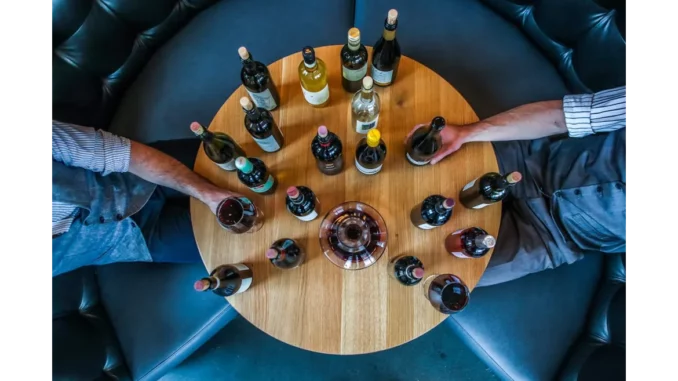
In the world of wine, personal taste reigns supreme. What one person adores, another might find unpalatable. This was the key takeaway from my conversation with Martin Gallagher, a sommelier with over a decade of experience, who shared his insights into the often complex process of choosing the right wine. Martin is not only knowledgeable but also refreshingly candid about the subjective nature of wine appreciation.
“It’s hard to make a recommendation,” Martin began, as we settled into a quiet corner of a bustling wine bar in London. “What I like may not be what you like. Wine is such a personal experience, and that’s what makes it so interesting.”
Martin’s career in wine began serendipitously during his university years. A part-time job at a local wine shop piqued his interest, and what started as a way to earn some extra cash quickly evolved into a lifelong passion. “I realised early on that wine isn’t just about taste. It’s about history, culture, and geography. Each bottle tells a story,” he explained, a hint of enthusiasm lighting up his eyes.
When it comes to recommending wine, Martin is cautious. “I always suggest doing a wine tasting,” he advised. “It’s an opportunity to explore different varietals and regions without committing to a full bottle. Many places, like O Chateau, offer guided tastings that can be both educational and fun.”
Wine tastings, as Martin described, are akin to a journey. They allow you to traverse the vineyards of France, the rolling hills of Italy, or the sunlit landscapes of Australia from the comfort of your glass. “It’s like travelling without moving,” he mused. “You get to taste the essence of a place, the climate, the soil, all in one sip. It’s quite remarkable.”
The concept of wine tasting might seem daunting to some, especially those new to the world of wine. Martin, however, assures that it’s an experience tailored to all levels of expertise. “You don’t need to know anything about wine to enjoy a tasting. In fact, it can be more enjoyable if you approach it with an open mind and a sense of curiosity.”
As our conversation continued, Martin shared some practical tips for anyone interested in finding their ideal wine. “Start broad,” he suggested. “Try different types – reds, whites, rosés, even sparkling wines. Pay attention to what you like and dislike about each one. Is it too sweet? Too dry? Make notes of your preferences.”
He also stressed the importance of context. “The setting can greatly influence your perception of a wine. A robust red might be perfect for a cosy winter evening, but not so much for a summer picnic. Consider the occasion and the food you’ll be pairing with the wine.”
One of Martin’s favourite aspects of wine is its ability to bring people together. “Wine is inherently social,” he noted. “It’s meant to be shared and discussed. A bottle of wine can spark conversations and create lasting memories.”
He recounted a personal anecdote to illustrate this point. “I once hosted a blind tasting for some friends,” he said, a smile playing on his lips. “We had a mix of seasoned wine lovers and complete novices. It was fascinating to see how everyone had different opinions on the same wine. There were debates, laughter, and some surprising revelations. By the end of the evening, everyone had learned something new, not just about wine, but about each other.”
When asked about his personal favourites, Martin hesitated. “I have my go-to wines, of course, but I’m always discovering something new that surprises me. That’s the beauty of wine – there’s always something more to learn, another flavour to explore.”
As our chat drew to a close, Martin offered a final piece of advice. “Don’t be afraid to experiment,” he encouraged. “Wine should be enjoyable, not intimidating. Trust your palate and enjoy the journey. And remember, there’s no right or wrong when it comes to taste.”
Our conversation left me with a renewed appreciation for wine, not just as a beverage, but as an experience. Martin’s insights highlighted the importance of exploration and personal preference in the world of wine, reminding us that the perfect bottle is out there, waiting to be discovered.
Elaine Cooper


Be the first to comment